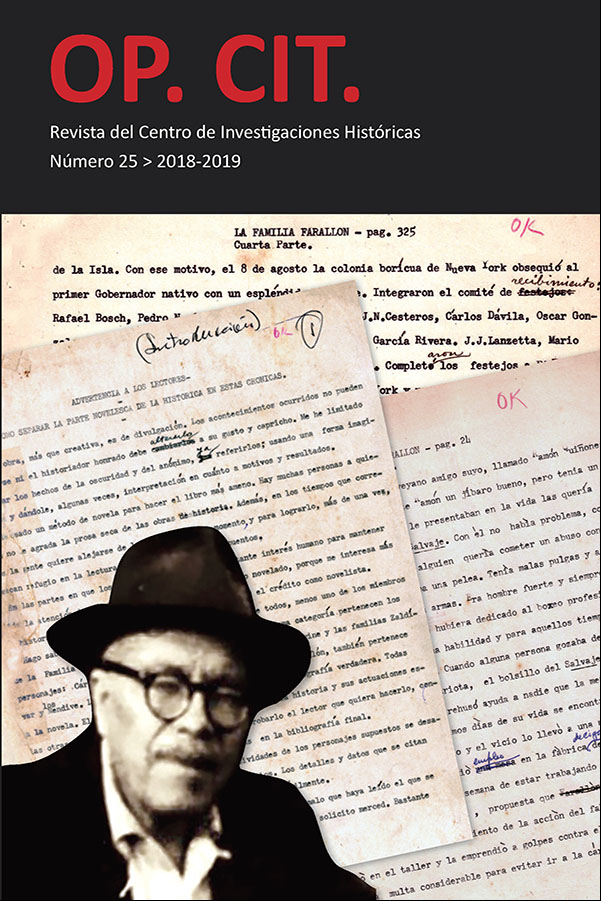Abstract
In 1955, Bernardo Vega published three fragments of his original manuscript titled "La familia Farallón". The excerpts were extracted from a text that since 1977 we have known exclusively through its abbreviated version in Spanish and English (1984): Las memorias de Bernardo Vega. Our work proposes a reading of "La familia Farallón" through the lens of these passages published in New York. Through them, we unveil the third person voice of the original narrator, and unearth an incomplete work, with its forgotten characters, and a distinctive identity and narrative structure. Our study retrieves the manuscript‘s anarchist roots and its underlying pedagogical credo: education as an agent of social change. By recovering all the preliminary pages of Vega‘s manuscript, dated 1955, our essay reveals the historical context from which his work sprang. The American press labeled it "The Puerto Rican Problem". The abrupt "ending" of Vega‘s original manuscript crystallizes his denunciation of this designation.

